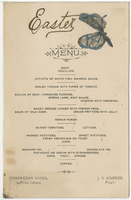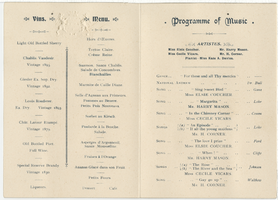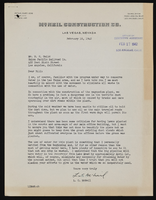Search the Special Collections and Archives Portal
Search Results

Denise Lutey oral history interview: transcript
Date
Archival Collection
Description
Oral history interview with Denise Lutey conducted by Barbara Tabach on February 27, 2018 for the Remembering 1 October Oral History Project. In this interview, University of Las Vegas, Nevada (UNLV) campus officer Denise Lutey gives an account on the night of the October 1, 2017 mass shooting in Las Vegas, Nevada. She discusses the campus security measures taken at UNLV in order to keep the campus secure and create a safe space for any survivors. She mentions the people who were involved in providing safety and resources for the survivors, including the officers and student workers. Officer Lutey also discusses the general campus response as well as the various resources offered to citizens to help them be prepared for an emergency situation, such as the Active Shooter Training provided on campus.
Text

Film strip of individuals or Hoover Dam construction, image 003: photographic print
Date
Archival Collection
Description
Image

Film strip of individuals or Hoover Dam construction, image 005: photographic print
Date
Archival Collection
Description
Image

Film strip of individuals or Hoover Dam construction, image 008: photographic print
Date
Archival Collection
Description
Image

Film strip of individuals or Hoover Dam construction, image 009: photographic print
Date
Archival Collection
Description
Image

Film strip of individuals or Hoover Dam construction, image 010: photographic print
Date
Archival Collection
Description
Image

Teegarden Hotel Easter menu
Date
Archival Collection
Description
Text


